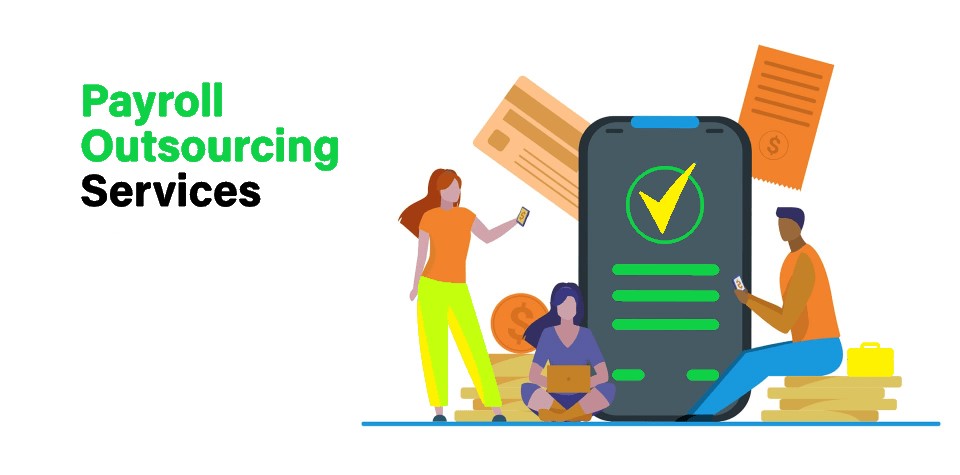Employee satisfaction is the key to the sustainability of a business. If your employees are satisfied, they’ll provide you with the best output. And there’s no better way to keep your employees satisfied than providing them regular payment. For this reason, a robust payroll outsourcing service is vital for the growth of any small business.
Generally, small businesses don’t have adequate manpower to manage everything. Most businesses have one in-house accountant in charge of managing the finances. As a result, payroll is always a struggle. And to make your life easier, outsourcing your payroll is always a good idea.
So, you might ask, what is a payroll outsourcing service? Basically, it’s a way to outsource your payroll and employee payments to another company. In this article, we’re going to discuss everything you need to know about outsourcing your payroll!
What is Outsourcing Payroll Service:
Generally, the payroll system refers to the method of providing the employees with their payments. It helps to monitor specific details such as the employees’ working hours, their bonuses and benefits, taxes for the company and the individual employee, and certain other factors.
Payroll management is a complex process and requires a fair bit of effort to keep everything running. Any mistake in payroll can cause a lot of trouble; such as employee dissatisfaction and legal trouble during taxation.
In order to manage everything properly, you can hire a specialized agency to manage your payroll for you. They manage all the necessary resources to make sure your employees are paid on time. They’re getting all the necessary support from your business. Everything is managed on time. This process is known as outsourcing payroll service. There are many companies that specialize in payroll management. To receive their services, you have to sign a contract with them. Although there’s a bit of an investment involved, the long-term benefits make the service worth the money.
Benefits of Outsourcing Payroll Service:
Now that we’ve discussed what is outsourcing payroll service, here are the benefits of outsourcing payroll service for a small business:
Saves Time:
Payroll management is a somewhat complicated process. And it requires a lot of time and effort to keep it running. Suppose you’re a small business and plan to use your manpower for payroll management. In that case, your inadequate manpower will struggle with managing everything. The entire process will take much longer than a company that specializes in payroll management.
When you’re outsourcing your payroll service, your accountants have time in their hands to focus on other aspects of your business, thus increasing your productivity to a great extent as well.
Saves Money:
You might wonder how getting a payroll service saves money when it’s an investment in the first place. To begin with, when you’re investing in a payroll service, it’s going to cost significantly less than hiring a massive team of accountants for your business.
Furthermore, since your payroll is managed by a group of experts, the chances of errors are very slim. As a result, you won’t have to pay for penalties or fines imposed by the taxation service. Also, you might be able to apply for levies and tax cuts due to your payroll management.
For this reason, outsourcing your payroll is more cost-effective than getting it done in-house.
Keeps Your Information Secured:
Your payroll information is very sensitive. As a result, it needs to be protected at every moment. Most reputed payroll service providers have a very robust mechanism in place to protect your information. These include encryption and password protection for your information.
However, it’s essential that you’re getting your payroll done by a reputed payroll provider and ensuring they have a robust security system to protect your information.
Keep Your Employees Notified:
Certain payroll services have a backlog system. You can use it to keep your employees notified about their salaries, bonuses, taxes, etc. Basically, your employees can log in to the portal to see all the details of their payments.
This is a great way to keep your employees satisfied since they already know how much money they’re getting and all the details available. So, make sure your outsourced payroll provider has this feature.
Precautions Before Outsourcing your Payroll Service:
Before you outsource your payroll service, you need to keep a few things are kept in check. Otherwise, outsourcing will only do more harm than good. These include:
Licenses and Accreditation:
A company needs to have proper accreditation and licenses to be considered a payroll service. So, before you get an outsourced payroll service, make sure it’s accredited, and all the licenses are valid. Taking services from an unlicensed company not only risks your information and create a loophole for mistakes, but you will also have to deal with a plethora of legal troubles. So make sure you’re getting your services from an accredited company.
Paying for Too Much:
While this isn’t a problem per se, most payroll service providers will try to coax you into signing up for multiple packages. These packages have certain features that you don’t need. As a result, you end up paying too much for services you don’t need. Considering that you’re a small business, this additional cost does more harm than good.
For this reason, we recommend that when you’re outsourcing your payroll service, you aren’t paying for too much or getting services that aren’t beneficial for you.
Conclusion:
Payroll is an integral part of your business. It keeps your business steady and employees satisfied. However, it’s normal for small businesses to struggle with payroll, and outsourcing is a fantastic solution.
If you were wondering what is payroll outsourcing services, we’ve answered everything you need to know about it. We hope you find this article helpful!










